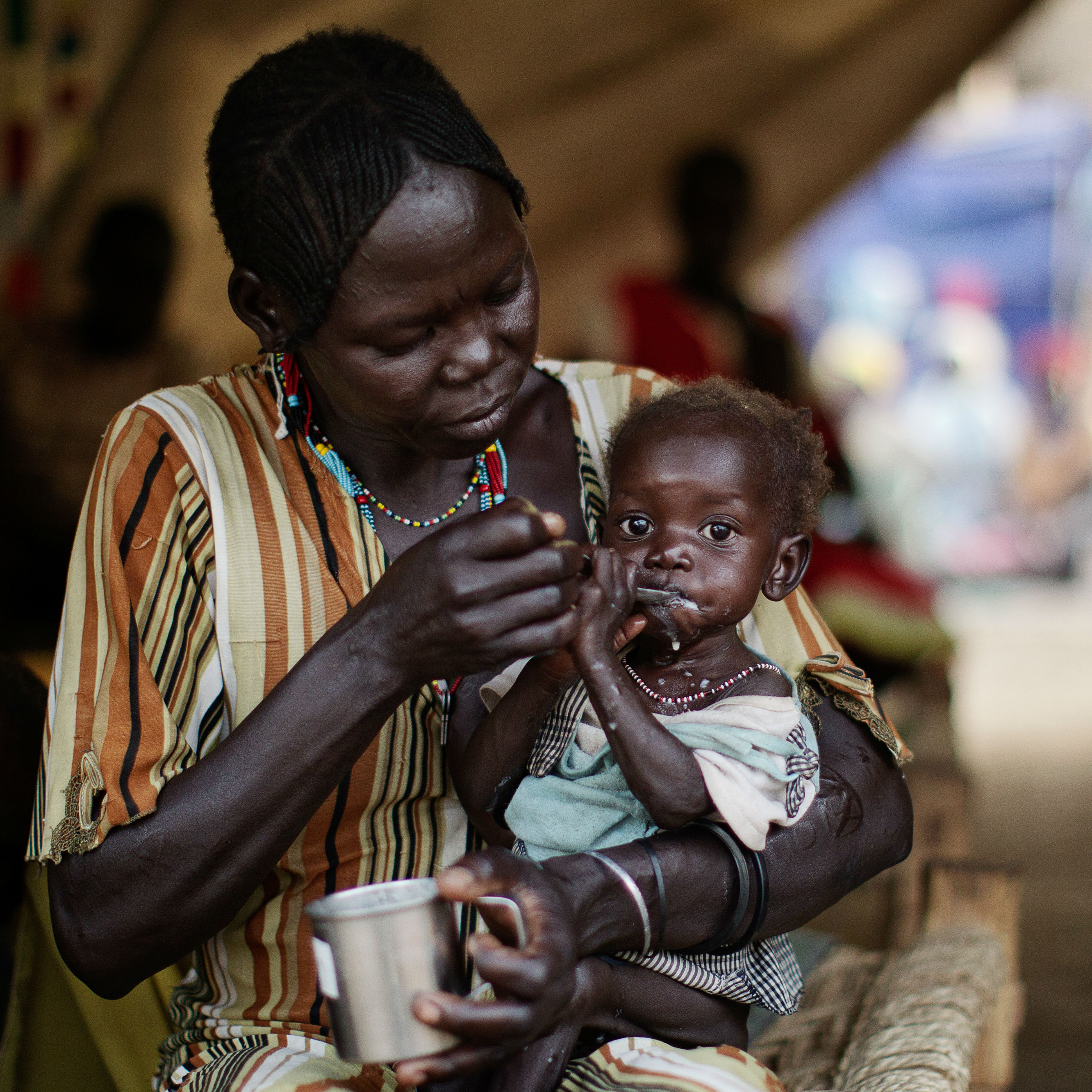South Sudan's bishops have appealed for humanitarian assistance, as a collapsing economy and ongoing civil war has led to an official UN declaration of famine in parts of the country.
More than 100,000 people are affected and the numbers are expected to rise to a million in the coming days if there is no urgent help for what is being seen as a man-made tragedy after three years of conflict, UN agencies said in a formal declaration on 20 February. More than 4.9 million – 40 per cent of the total population – are reported to urgently need food.
“Our country is gripped by a humanitarian crisis – famine, insecurity and economic hardship," the South Sudan Catholic Bishops’ Conference said in a pastoral letter released on 23 February. "Our people are struggling simply to survive. While there have been poor rains in many parts of the country, there is no doubt that this famine is man-made, due to insecurity and poor economic management.
Millions of our people are affected, with large numbers displaced from their homes and many fleeing to neighbouring countries, where they are facing appalling hardships in refugee camps," continued the statement.
The Bishops called on the international community “for immediate and unconditional concrete intervention and action before thousands of innocent lives are carried away and before it is too late.”
Pope Francis called for a commitment to a practical intervention in South Sudan, saying that statements alone were not enough, following his general audience in St Peter's Square on 22 February.
"Of particular concern is the painful news coming from suffering South Sudan, where a fratricidal conflict is compounded by a severe food crisis in the Horn of Africa region, which condemns to death by starvation millions of people, including many children. At this time, it is more necessary than ever that all commit not to stop at making statements, but also to provide concrete food aid and to allow it to reach suffering populations."
A formal declaration of famine means that people have already begun to starve. The United Nations definition of famine is when three conditions coincide: at least 20 per cent of a population faces extreme food shortages, 30 per cent of people experience acute malnutrition, and at least two people per 10,000 die every day.
The famine is the first to be declared since 2011 in Somalia, where more than a quarter of a million people are estimated to have died between October 2010 and April 2012.
Jeremy Hopkins, Unicef representative in South Sudan, said an estimated one million children are currently acutely malnourished and a quarter of a million are severely malnourished.
“If we do not reach these children with urgent aid many of them will die,” said Hopkins. “We urge all parties to allow humanitarian organisations unrestricted access to the affected populations.”
Fergus Conmee, head of Cafod’s East Africa programme has urged the international community to intervene in the crisis.
“Amid the rising needs elsewhere in the world, now is not the time for the international community to walk away from South Sudan, they must sit up and notice, and together we must do all that we can to save lives,” Conmee told ITV news on 20 February.
According to the UN if the civil war continues, preventing the arrival of humanitarian aid in South Sudan, over five and a half million people will suffer from severe hunger by July.
Italian medical agency, Doctors with Africa Cuamm, has reported at least 300 cases of suspected cholera in South Sudan’s Yirol East counties and Awerial, Agenzia Fides news agency reports.
"We have not yet [had] an official confirmation that this is cholera, but we think it is very likely", said Giovanni Dall'Oglio, head of operations for Cuamm in the two regions.
The area’s health centres and hospitals are unable to provide adequate services due to the influx of tens of thousands of displaced people forced to flee their homes as a result of ongoing civil war explained Dall’Oglio.
South Sudan has been wracked by ethnic violence since gaining independence from Sudan in 2011. In 2013, the country was plunged into civil war when Government forces loyal to President Kiir, an ethnic Dinka, battled rebels led by his former vice president Riek Machar, who is a Nuer. A peace agreement was signed in August 2015, but fighting has continued.




 Loading ...
Loading ...